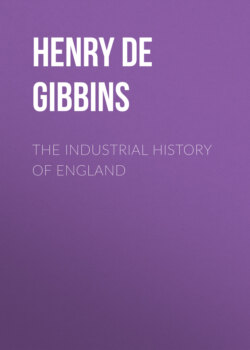Читать книгу The Industrial History of England - Henry de Beltgens Gibbins - Страница 33
На сайте Литреса книга снята с продажи.
§ 3. The trading clauses in the Great Charter
Оглавление—One great proof of the existence of a fair amount of foreign trade is seen in the clauses which were inserted in the Great Charter (1215), by the influence of the trading class. One enactment secures to foreign merchants freedom of journeying and of trade throughout the realm, and another orders a uniformity of weights and measures to be enforced throughout the whole kingdom. The growth of home industry in the towns is seen in the enactment which secures to the towns the enjoyment of their municipal privileges, their freedom from arbitrary taxation, and the regulation of their own trade. The forfeiture of a freeman, even upon conviction of felony, was never to include his wares, if he were a merchant. The exactions of forced labour by the royal officers was also forbidden, and this must have been a great boon to the agricultural population. There is also a clause which endeavours to restrict usury exacted by the Jews, a clause which points to the usual characteristics of the Hebrew race, and which shows their growing importance {35} in economic England. We will therefore briefly mention the facts concerning them at this period.
